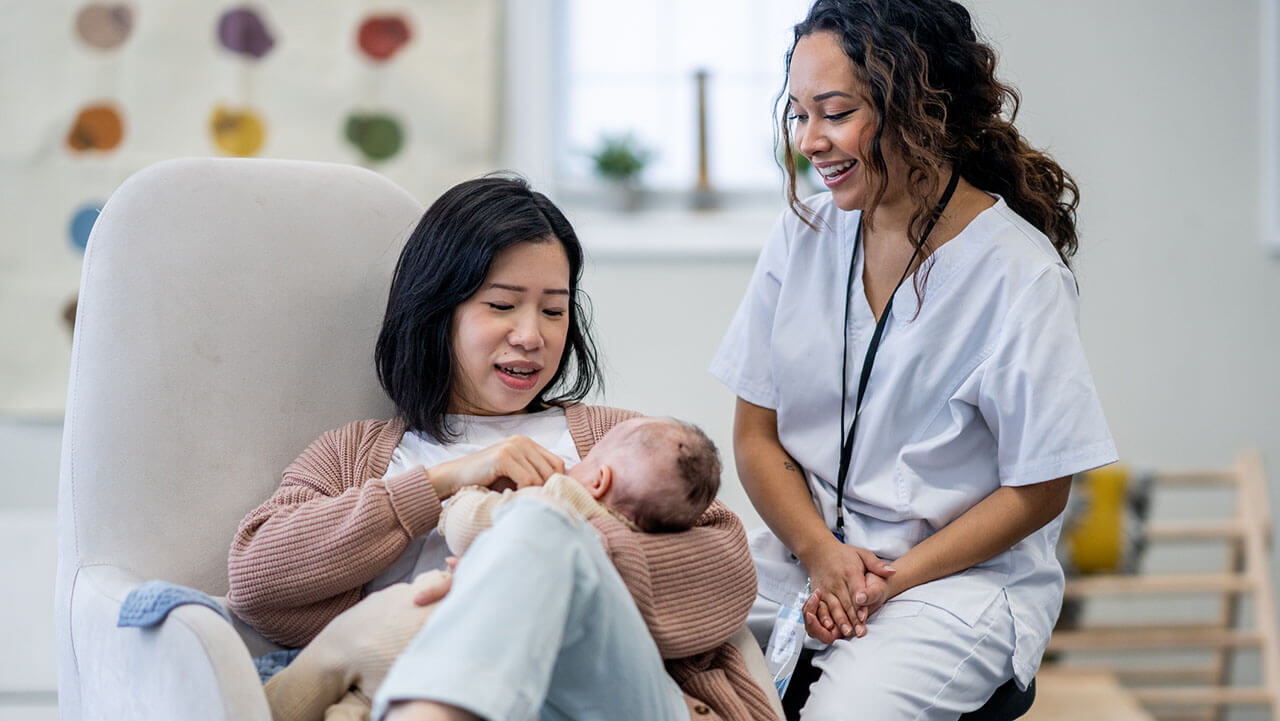Pregnancy, hip, pelvic and low back pain tips


Pregnancy brings on changes to a woman both physically and emotionally. The bun in your oven is pushing, moving and manipulating your body in a way to make room, which can lead to pain and discomfort. Following these tips can lessen the discomfort that pregnancy can cause to your hips, pelvic and lower back.
Investing in pregnancy support belts and bras can help alleviate pressure from pregnancy weight. If a specific area has a flare up, massage or apply a heat or cold pack for 10 to 20 minutes to reduce any pain or discomfort. If you have any concerns or worries and the pain you are feeling, contact your OB doctor or midwife for more information and possible treatments.
Avoid activities and/or positions that strain the joints of the pelvis and lower back
- Be conscious of how you sit, stand and move
- Sit in chairs with good back support or place a small pillow behind your lower back
- Avoid crossing legs; standing with weight on one leg; cross-trainer machine, stair stepper or stair climber machine; and bicycling or sitting in asymmetrical positions
Use the best sleeping positing
- Lie on your left side with pillow support under your head and neck, between knees and under belly, a long body pillow works well
Use good lifting techniques
- When bending down keep your back straight, bend your knees and squat down. Avoid bending at the waist
- Get the weight of the object closer to your body before standing
- Don't hold your breath when lifting items; exhale as you lift
- Avoid twisting to reach for or pick up items from any height
For standing activities, such as washing dishes, cooking, ironing, brushing teeth or changing diapers
- Use a small foot stool to place one foot on the stool while performing the activity; interchange the foot every 5 to 10 minutes
- Wear shoes with good arch support and are low-heeled or flat tennis shoes
Getting in and out of the car
- In: place all items in the passenger or back seat before getting into the driver's seat. After opening the driver's side door, turn to face away from the seat (still facing sideways), and bring one leg in at a time into the car.
- Out: bring one leg out at a time out of the car. Turn your body to face toward the door and scoot to the edge of the seat before standing. Retrieve items from the passenger or back seat after getting out of the car.
Getting in and out of bed
- In: sit on the edge of the bed and scoot back until your thighs are fully supported on the bed. While lifting your legs onto the bed, lower upper body weight onto your elbow. Once lying on your side, you may further position yourself in side-lying or roll onto your back.
- Out: bend your knees and roll onto your side without twisting the spine. While lowering your legs off the edge of the bed, push yourself up into a seated position with the help of your arms. Once in seated position, come to standing.
Avoid prolonged positions
- If you sit all day at work, take brief standing or walking breaks every 15 to 30 minutes
- If you stand all day, take a sitting break (preferably with feet propped up) every 15 to 30 minutes
- Pump your ankles during the break to improve blood flow and reduce swelling
Exercises for back pain
Click here for some exercises to help with back pain. If you have ongoing pain or difficulty doing these exercises, talk to your OB provider.Investing in pregnancy support belts and bras can help alleviate pressure from pregnancy weight. If a specific area has a flare up, massage or apply a heat or cold pack for 10 to 20 minutes to reduce any pain or discomfort. If you have any concerns or worries and the pain you are feeling, contact your OB doctor or midwife for more information and possible treatments.



